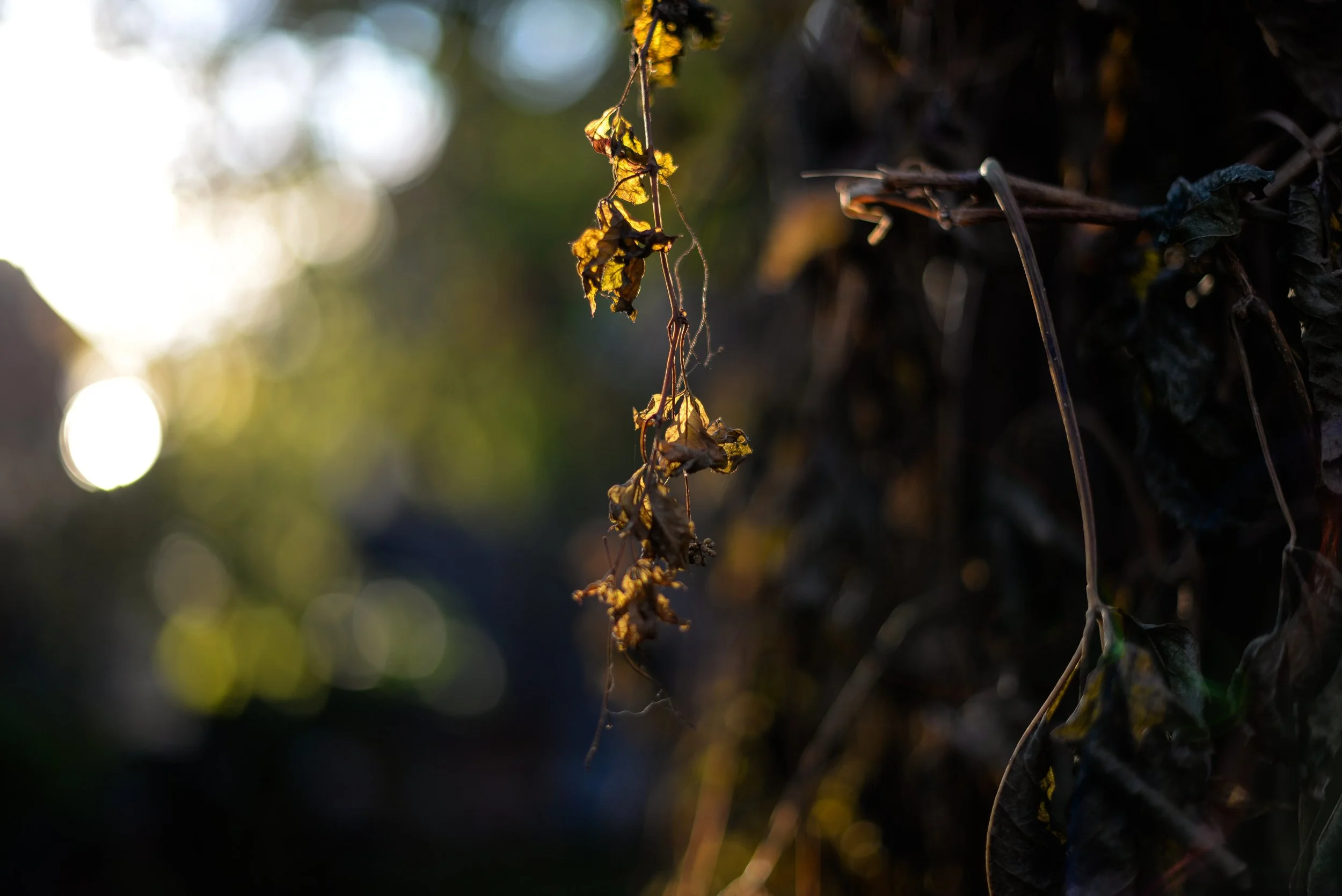A Week of Prompts – Wabi Sabi
It seems the perfect time of year to consider and embrace the aesthetics of wabi-sabi. The book I have most referred to while learning about this aesthetic is by Leonard Koren and is titled: Wabi-Sabi: for Artists, Designers, Poets & Philosophers. For those interested, there is also Further Thoughts.
In brief, the philosophy of wabi-sabi states that things are impermanent, all things are imperfect, all things are incomplete. As well, Koren says, "Greatness exists in the inconspicuous and overlooked details" and "beauty can be coaxed out of ugliness." When appreciating what is wabi-sabi, we accept the inevitable, the "evanescence of life." The mood evoked is one of "an existential loneliness and tender sadness." But there is a comfort, too, in knowing "all existence shares the same fate." Wabi-sabi is pared down, elegant, awkward, maybe. It might be thought of as rustic, or faded, and strangely unique.
““Wabi-sabi is a beauty of things imperfect, impermanent, and incomplete. It is a beauty of things modest and humble. It is a beauty of things unconventional.””
So for this week's writing challenge, I offer you 7 days of writing prompts related to wabi-sabi.
The Prompts
1. Say Goodbye to Perfection
Using the poem below by Fr. Kilian McDonnell as a prompt, write your own farewell to perfection. What do you want to quit, throw out, leave behind? What hints might you have taken?
Perfection, Perfection
by Father Kilian McDonnell
I have had it with perfection.
I have packed my bags,
I am out of here.
Gone.
As certain as rain
will make you wet
perfection will do you
in.
It droppeth not as dew
upon the summer grass
to give liberty and green
joy.
Perfection straineth out
the quality of mercy,
withers rapture at its
birth.
Before the battle is half begun,
cold probity thinks
it can be won, concedes the
war.
I handed in my notice,
given back my keys,
signed my severance check, I
quit.
Hints I could have taken:
Even the perfect chiseled form of
Michelangelo’s radiant David
squints,
the Venus de Milo
has no arms,
the Liberty Bell is
cracked.
2. The Small Silences Between the Leaves
Look at leaves. This won't be a difficult prompt at all. If you're fond of taking photos of the seasons, you've likely already taken numerous leaf photos. You might start this prompt by taking photos, by looking long at a a certain leaf, or a branch of leaves. But then I ask you to look at it longer. Stay with the leaves. Notice the veins, the crumbled bits, the silence, the light. Write it all down. What peace do you find there?
This next poem might act as a prompt, too.
To Look at Any Thing
by John Moffitt
To look at any thing,
If you would know that thing,
You must look at it long:
To look at this green and say
“I have seen spring in these
Woods” will not do–you must
Be the thing you see:
You must be the dark snakes of
Stems and ferny plumes of leaves,
You must enter in
To the small silences between
The leaves,
You must take your time
And touch the very peace
They issue from.
3. Be unpremeditated – let your eye fall on what it falls on
Go for a walk, find a foresty place. Sit on a fallen tree or on a stump. Let your eye lead you. While your eye wanders, ask yourself, what are the questions of your life? Write them down.
“Whatever your eye falls on - for it will fall on what you love - will lead you to the questions of your life, the questions that are incumbent upon you to answer, because that is how the mind works in concert with the eye. The things of this world draw us where we need to go.”
“All contemplative acts, silences, poems, honor the world this way. Brought together by the eye of love, a milkweed pod, a twig, allow us to see how things have been all along. A feast of being.”
– Mary Rose O’Reilley
4. Write About a Photograph
You might be inspired by looking at this post by Tim Wong where he talks about wabi-sabi and shares some of his photos and some Japanese poetry. You might seek out boards on Pinterest related to wabi-sabi, or look for photos by Masao Yamamoto, Saul Leiter, or Mary Jo Hoffman (who has the website incredible photo site: Still). Donna Watson's blog might also inspire.
5. Kintsukoroi
Kintsukoroi is a Japanese term, "to repair with gold." (Sometimes called Kintsugi). It is "the art of repairing pottery with gold or silver understanding that the piece is more beautiful for having been broken." Your prompt: consider an object that is worn or broken. Use the pinterest poster below to spark your writing.
6. Fill a Bowl
Go on a nature walk or stroll around in your back yard. Collect leaves, bits of bark, twigs, faded flowers. Put them in a bowl on your kitchen table. Make tea. (Or coffee etc). Sit with the bowl. Reflect on the imperfect nature of the objects you have found. Let them take you where they take you. Write about this experience.
7. Something Impermanent
Write about something that you no longer have. You might write about the spring blossoms, now that it's autumn. Or the fleetingness of seasons. Maybe there's an object you gave away or let go. How does it continue to occupy your mind? Write about something that's gone, or missing, something fleeting, or something lost and broken or stolen.
I'll leave you with a video about Kintsugi, and wish you happy writing for another week.








